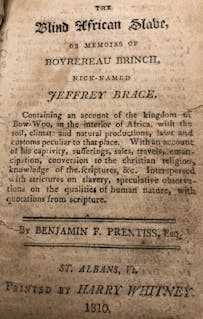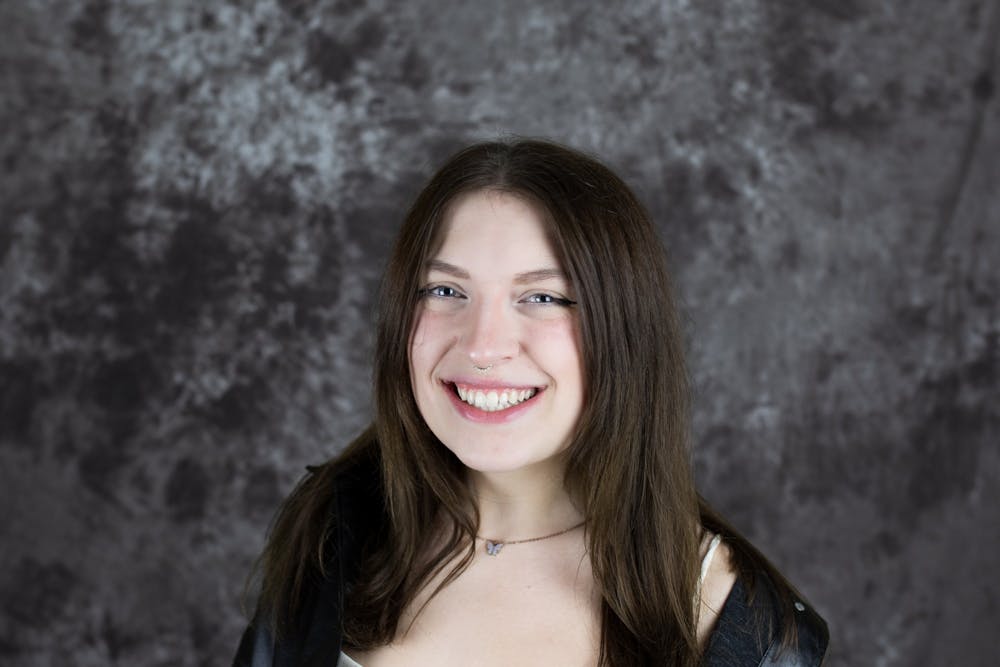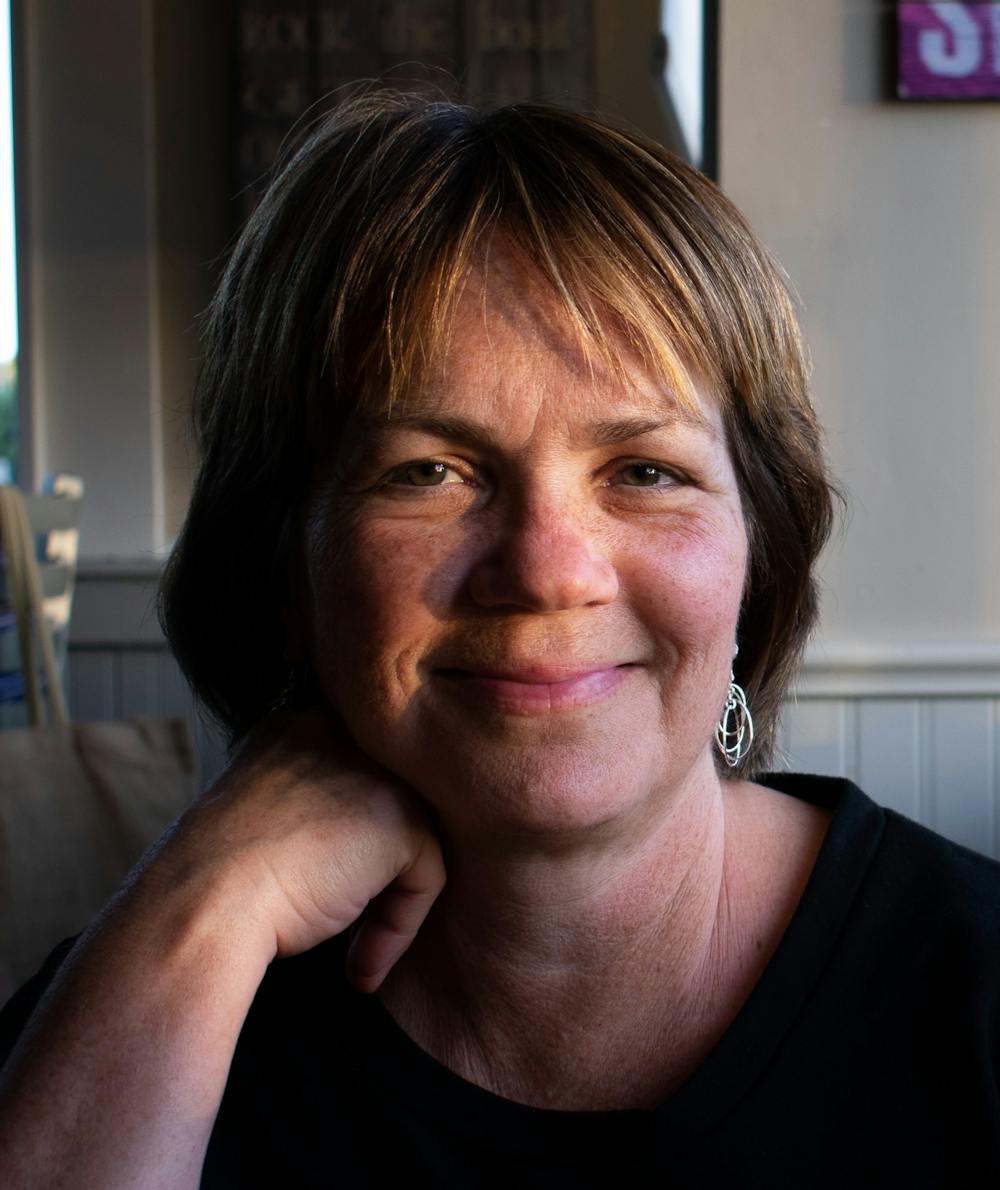What do the president of a Vermont historical society, a Ph.D. student from Mali and a UB professor have in common?
The answer: “Labor’s Fruit.”
A passion project over 25 years in the making, “Labor’s Fruit” is the culmination of global gender and sexuality studies professor Kari Winter’s research into former slave Jeffrey Brace’s life. The four-part docuseries will build off Winter’s extensive research and chronicle the first African-American resident of Poultney, VT’s life from his time in slavery until his death as a free man and will explore the lives of those close to Brace.
Winter began the project in the mid-1990s while working at the University of Vermont, where she learned that Brace’s memoir, which had been published in 1810, had disappeared for nearly 200 years.

From this discovery, Winter launched an intense international research journey spanning the late 90s to the early 2000s. Her work led her from New England to Washington D.C. to Barbados to London, all in the pursuit of Brace’s elusive story.
Her research was nothing short of an adventure.
Winter had to visit the National Archives of Barbados, which she says is “located in a remote spot that was originally a leper colony” and is virtually inaccessible without personal transportation.
If she thought that was difficult, her travels to London offered an even bigger challenge.
Due to funding constraints, Winter had just three days to scour the Public Records Office in Kew, London for documentation on the man who purchased Brace. Just as she was ready to give up, she found the man’s name at 5 p.m. on the third day — Isaac Mills.
But as rewarding as this finding was Winter’s “most exciting” discovery had yet to be uncovered.
“The most exciting discovery I made was that [Brace] had descendants who were very interested in family history, but the knowledge of his memoir had disappeared,” Winter said.
Brace’s original memoir may have disappeared, but Winter was still able to piece together his long history for his extended family.
At the age of 16, Brace was taken from his home in West Africa and enslaved in Connecticut. But after fighting as a slave soldier in the American Revolution, he was able to win his freedom. He moved to Vermont, the first state to outlaw slavery, in 1784. There, he led a fulfilling life with his wife Susannah, until his death in 1827. He was 85.
Winter found sharing Brace’s story with his extended family to be fulfilling, but she wanted to share this information with an even wider audience.
“I just have a burning passion to make sure this story registers in the public history in the American imagination because it’s a really important story,” Winter said. “ It goes against stereotypes we have about the North and the South and who’s responsible for slavery and where racism grows and so on.”
The opportunity to spread Brace’s story presented itself after Winter met a Vermont filmmaker who gave Winter the opportunity to work with a team of documentarians and filmmakers on a series about African-Americans in Vermont. Brace would have a whole episode dedicated to his story.
But one episode of the series was not enough for Winter. She wanted to tell Brace’s story beyond his time in Vermont. Sensing that the Vermont series was not coming to fruition, Winter took Brace’s story into her own hands.
Thus, the docuseries began.
“I think [my docuseries is] pretty high risk because it’s not easy to make something like this happen. So it’s a new venture for me, and it’s a steep learning curve,” Winter said.Winter made up for her lack of experience through rigorous study. She attended masterclasses for screenwriting, dedicated time to reading books on the film industry and has made a concerted effort to read through scripts. She wants to understand how to write a drama while maintaining historical accuracy.
Winter has been working on the docuseries with Soumy Guirou, a Ph.D. student from Mali, where Brace was born. Guirou has acted as Winter’s research assistant and will translate Brace’s earlier English lines to Bozo.
So far, Winter has initiated a series of table reads for the docuseries. The first table read was created a “couple of years ago.” The reading of the third episode featured Buffalo’s Ujima Theater Company actors Paulo Silva as Brace, and Dayatra Amber Hassan, in various roles.
Hassan and Silva reprised their roles in a second reading of the revised third episode on Jan. 6, the same day the U.S. Capitol was stormed.
This coincidence was a powerful one.
Sydne Jackson, a junior Theater Performance Major, is one of the many actors for the current table reads, taking on multiple roles across age and race. She says the uncertainty of that day weighed on the minds of everyone involved.
“We thought [the table read] was going to be rescheduled at first because a couple of people who were supposed to be there were like, ‘I don’t know if I want to be there right now because it was a very emotional day,” Jackson said.
The storming of the Capitol did not deter production, but it did leave the actors dazed. After the table read of the first episode on Feb. 27, the narrator of the series, Regina Mason, said the event was just another example of history repeating itself.
“Here we are today, on the heels of Jan. 6, and we are living in similar times,” Mason said. “ I’m not talking about reducing the racial inequities, of course, and reducing violence. But it’s almost like, when are we going to learn?” Mason was moved to tears while talking about the event.

But the actors used the table read as not just a time for somber reflection, but a time for celebration.
The table read brought together people from across the country, all of whom were passionate about telling Brace’s story.
Richard Hanson, president of the Poultney Historical Society, signed on from the town Brace lived in toward the end of his life.
Other attendees included Rhonda and Shawna Brace, descendants of Brace himself, as well as Vera Williams, a descendant of Solomon Northup, who wrote the memoir “12 Years a Slave.”
The attendees all commended Winter on her work, including Ndubueze Mbah, an associate professor in UB’s Department of History.
“This was a really transporting reading. It put me right in the community that Jeffrey Brace was in,” Mbah said.
Winter hopes to carry this sense of celebration throughout the docuseries.
“Learning about the lives of people who were oppressed in the past isn’t just depressing, Winter said. “ It’s actually really inspiring and it really helps illuminate the human condition,” Winter still has a ways to go with the docuseries, but she and everyone else involved promises a faithful and moving adaptation of Brace’s life.
The features desk can be reached at features@ubspectrum.com

Kara Anderson is a senior arts editor at The Spectrum. She is an English and Spanish double major and is pursuing a certificate in creative writing. She enjoys baking chocolate chip cookies, procrastinating with solitaire and binging reality TV on the weekends.





